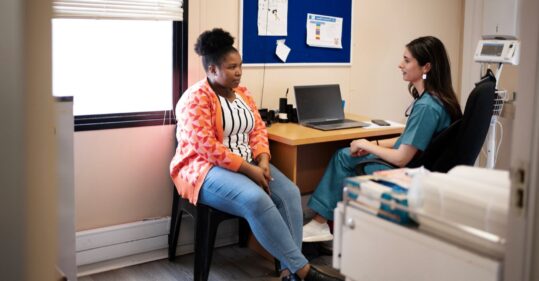Collective action taken by GPs in the coming weeks should demonstrate the ‘important role’ of primary care, though it is likely to have a ‘knock-on effect’ on nurses and other practice staff, the Royal College of Nursing (RCN) has said.
It was confirmed on Thursday that GPs in England had overwhelmingly voted in favour of taking collective action as part of a British Medical Association (BMA) campaign over funding.
Actions include refusing to share patient data unless it is in the best interests of a patient, referring patients directly to specialist care rather than following longer and more complex NHS processes, and switching off NHS software which tries to cut prescribing costs.
The RCN has said nursing staff working in GP practices that elect to take collective action ‘should continue to work in their roles as normal’.
Related Article: Nursing associates should not work in maternity, says NHSE and nursing bodies
‘This action would be taken by general practice partners and contractors, though we appreciate it will have a knock-on effect to other staff in the practice and the services the practice delivers,’ it said in a statement online.
‘The actions we expect to see general practitioners take would aim to demonstrate the important role that primary care plays.’
GP nursing staff should continue to undertake their usual role within their ‘competencies and responsibilities’, added the RCN, noting that action by GPs is not expected to result in ‘taking on extra work’ for nurses.
‘If your employer instructs you to not undertake activity due to collective action, you should follow the instruction of your employer as long as it does not directly compromise patient safety,’ the RCN has advised.
‘You should not undertake activity outside of your scope of practice or competency.’
The RCN said the BMA had offered assurance that GPs ‘will be present, working and available to advise and lead patient care’.
The BMA action comes amid ongoing concerns over funding issues within the GP contract.
Of the entire NHS budget, general practices receive 6% of guaranteed funding.
Related Article: Criteria for ARRS ANPs tweaked – but digital badge still key
The BMA’s GP committee for England (GPCE) believes this needs to gradually increase by 1% year on year, to 15%, while all existing funding is protected across the wider system.
As part of its campaign, the BMA has said previously that general practice nurses (GPNs) should be included within the Additional Roles Reimbursement Scheme (ARRS) and given ‘parity of contractual esteem’ with colleagues in NHS trusts.
The RCN said it believed the GP contract ‘is no longer working to deliver what is needed for patients and the population or the workforce employed within primary care’.
‘We, like the BMA want to see a sustainable funding model for general practice including ringfenced funding for nursing pay and for nursing staff working in general practice to receive agenda for change pay terms and conditions as a minimum,’ it added.
Related Article: Government will not pursue separate pay spine for NHS nurses
The news of the GP action follows an announcement confirming that an incoming uplift to the GP contract should be used to cover a 6% pay rise for GPNs in England.
In addition, it was announced this week that GPs have been added to the ARRS in a bid to address concerns around the recruitment of doctors and that the inclusion of nurses on the scheme is to be reviewed.






